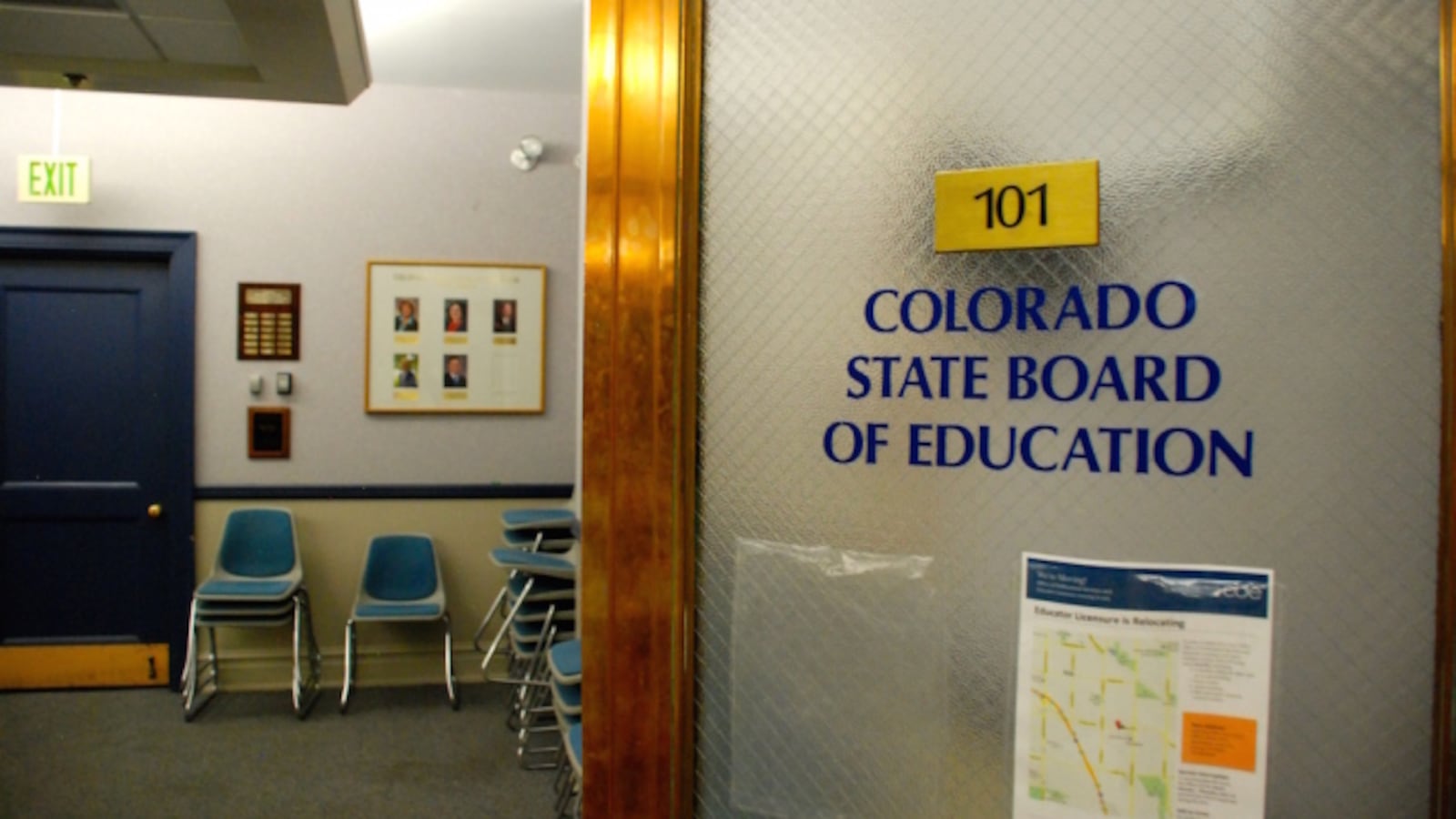Overreach.
That was the word used time and again by Colorado Department of Education officials and State Board of Education members Thursday to describe proposed regulations for the nation’s new education laws.
The Every Student Succeeds Act, signed into law in December, was initially lauded as the end of what many considered burdensome federal mandates. But since the U.S. Department of Education released its proposed rules for how the law would be applied, the tone across the county has shifted.
In the board room Thursday there were plenty of eye rolls, sighs and head slaps as department officials picked apart the regulations on academic standards, teaching quality and testing.
“They’re going out and saying they’re respecting states. I would argue they’re not,” said Patrick Chapman, CDE’s director of federal programs, referring to federal education department officials. “They’re saying the rules are creating more flexibility. I would argue they’re not.”
Department officials told the board they believed about a quarter of the proposed regulations put new limits on states. Another quarter were not authorized by law. And “most concerning” is that 12 percent of the regulations contained statements that conflicted with the law.
The department’s aim Thursday was to brief board members on decisions they will need to help make as the state prepares a plan to address the changes in federal law, and allow the board an opportunity to weigh in as the work gets underway.
Board members, especially those who champion more control at the district-level, echoed the sentiment over and over.
“The rules seem so distant from what the intent of the law was,” said Joyce Rankin, a Republican from Carbondale.
CDE plans to continue to review the rules and submit a formal response to the federal government later this month. The U.S. Department of Education declined to comment Thursday evening on state officials’ concerns.
Complaining about federal overreach aside, here are four other things you need to know from Thursday’s study session:
While some policy shifts might be necessary, CDE officials said that Colorado’s current education laws do not need to change.
To be in compliance with ESSA, no new legislation would need to be written and no existing laws would need to be amended, officials said. That means Colorado’s adoption of the Common Core State Standards and teacher evaluation laws could go untouched.
Both were put into place in a bid to win large grants from the Obama administration, and have subsequently become political lightning rods.
ESSA would allow Colorado to dump the Common Core, as some hope, but only if the state can prove its new standards are rigorous. And while the standards are set to be reviewed in 2018 under state law, many school districts and advocacy groups have reported to CDE that a major policy shift such as new standards would be unwelcome.
Some state board members flirted with the idea of rejecting federal dollars to avoid what they consider unnecessary regulation.
State board members Val Flores, a Denver Democrat, and Deb Scheffel, a Parker Republican, suggested more than once that the state should conduct a cost-benefits analysis on the money it receives from the federal government.
“Wouldn’t it be better if we just said no to the accountability? Not that we’re not going to have accountability. But just say no to those funds,” Flores said, adding she felt Colorado would save money if it discontinued its annual testing system.
Other board members and department employees corrected Flores’s math saying the state could lose hundreds of millions of dollars if it stopped testing its students.
Flores joked that the state could sell cookies.
One of the state’s most important decisions will be over how to determine school quality.
The state faces many decisions over how its school and district accountability system will change under ESSA.
The new law requires states add a new factor — not based on test scores — to its school rating system.
Alyssa Pearson, the department’s interim associate commissioner for accountability and assessment, said it could be the state’s most important decision.
Possibilities include taking into account parent surveys in elementary school, suspensions rates in middle school and absenteeism in high school. Any new data gathered must be disaggregated by categories such as student race, income and special education status. That could prove difficult because while some of that data is collected now, not all of it is disaggregated.
“This one will be a lot of fun,” said board vice chair Angelika Schroeder, “because we’ll have 100 different suggestions.”
There was little discussion about the committees that will help write the plan.
As Chalkbeat reported Wednesday, the State Board is expected to make appointments to a committee that will be responsible for drafting the plan.
Those appointments will include a parent, business leader and taxpayer.
The committee’s first meeting is tentatively slated for the first week of August, officials said.
The board did not discuss who would be on the committee.
Interim Education Commissioner Katy Anthes will be emailing school districts with an update on the department’s work on ESSA soon, department spokeswoman Dana Smith said in an email. That message will include what the department knows about the committee, she said.


